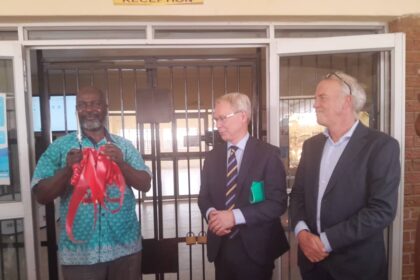Zimbabwe Coalition on Debt and Development Economic Analyst Zvikomborero Sibanda is adamant that the ZWL $473.8 billion allocated for public health in the 2023 national budget is inadequate to deal with the plethora of challenges in the sector.
Last Thursday, the Minister of Finance and Economic Development Professor Mthuli Ncube presented the 2023 budget worth ZWL 4.5 trillion inclusive of loan repayments.
The percentage allocated to the public health sector not only falls short of the agreed upon Abuja Declaration of 15 percent but has dropped by about 3.6% in comparison to the 2022 budget allocation.
With the aim of dealing with health challenges including tuberculosis and HIV, African Union leaders met in Abuja in 2001 and agreed to channel at least 15% of national budgets to health.
After barely missing the target by 0.01% in the 2022, the target is now much further as percentage allocation of the health sector in the 2023 national budget has dipped.
Dilapidated infrastructure, brain drain, inadequate supply of medications, low staff morale due to paltry salaries are among the numerous challenges in the public health sector.
Why Budget Allocation Is Inadequate.
However, Sibanda maintains the budget allocation is in adequate to resuscitate the health sector to yesteryear standards.
“The 2023 budget is allocating something like 11.3% to public health and I don’t think that it is adequate given that we have seen ceilings of hospitals falling on patients.
“Even in the context of so many women who are giving birth in toilets or losing their babies due to negligence of health workers.
“As a result of the paltry remuneration health workers moral is deteriorating.
“Given this context, I don’t think 11.3% is adequate and it already falls below the Abuja Declaration where African members states agreed to earmark 15 percent of the total budget to health sector,” Sibanda said.
Earlier this year, a portion of the ceiling fell on patients at the largest referral hospital in Zimbabwe. The ceiling debris fell on two patients in the hospital that sustained minor injuries.
Again, a number of negligence cases by health care institutions were brought before the courts over the years.
Furthermore, an independent financial analyst Eben Mabunda agrees that the allocation is insufficient but worries the allocation will not be disbursed timely.
“If you get into the 2023 budget you see that there has been a decline, this means that in the formulation of the budget not much effort has been placed in meeting the needs of the people.
“ In regards to the disbursements of these very amounts, there have been reports over the past few years that have hinged on there not being a follow through in terms of the actual disbursements of the particular allocations.
“Therefore, in as much as 11.3 percent has been allocated the question will be do they actually get to the public institutions,” Mabunda said.
According the the World Bank at least 6.6 million Zimbabweans were leaving in abject poverty.
Majority of the poverty stricken Zimbabweans use the inadequately funded public health facilities while the ministers and executive go abroad for treatment.



